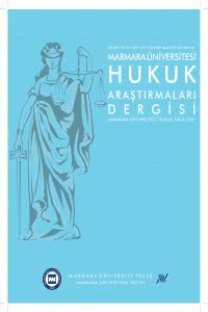ALMAN KISMİ SÜRELİ ÇALIŞMA VE BELİRLİ SÜRELİ İŞ SÖZLEŞMELERİ HAKKINDA YASA VE ÇEVİRİSİ
23 Mart 1999 tarihinde Avrupa Birliğinde UNICE, Birliği (Europäische EGB ve CEEP süreli iş sözleşmeleri konusunda bir Çerçeve Anlaşması imzalamışlardı. Bu çerçeve anlaşması ile sözleşmenin tarafı olan sosyal partnerlerin 1997 yılında Lüksemburgda, kararlaştırdıkları Avrupa istihdam stratejisinde kısmi süreli çalışmanın düzenlenmesi yoluyla iş sürelerinin esnekliği ve işçinin güvenliği arasında bir denge sağlanmak istenmiştir. Bu çerçeve sözleşmesi, belirli süreli iş sözleşmeleri için genel ilkeleri ve asgari hükümleri belirlemektedir. Bu ilke ve hükümler doğru uygulandıkları takdirde, ulusal olarak her sektörde sezonsal durumları da göz önüne alıp , belirli süreli iş sözleşmesi ile çalışan işçilerin, süresiz iş sözleşmesi ile çalışan işçilere göre dışlanma olgusundan korunmalarını ve işçilere de sözleşme sürelerine bakılmaksızın eşit muamele yapılmasını güvence altına almaktadır. Böylece, bu çerçeve sözleşmesi, süreli iş sözleşmesi ile çalışan işçilerin işveren ve işçiler arasında da kabul edilebilir, dengeli bir temelin oluşmasını mümkün kılmaktadır. Çerçeve anlaşması, esasen bir başlangıç ile 9 maddeden ibarettir. Anlaş- manın amacı, 1. maddede dışlama yasağı ilkesinin uygulanması ile süreli iş sözleşmelerinin kalitesini iyileştirmek ve birbirini izleyen süreli iş sözleşmeleri ile istihdam ilişkisinin kötüye kullanılmasını engellemektir. Anlaşmanın uygulama alanı, belirli süreli iş ilişkisi içinde bir iş sözleşmesine dayanarak çalışan veya yasaya, toplu sözleşmeye veya her üye ülkede geçerli geleneklere uygun bir istihdam ilişkisi içinde olan işçilerdir. Anlaşmanın 5. maddesi süreli iş sözleşmelerinin istismarını engellemek için de önlemler öngörmüştür. Üye devletler, hangi koşullarda süreli iş sözleşmelerinin ve istihdam ilişkilerinin ardarda uzatılmış olarak görülebileceğini ve süresiz sözleşme ve ilişkilerin geçerli olacağını da, sosyal tarafların dinlenmesi ve veya sosyal tarafların saptaması yoluyla belirleyebilirler. Bu konuda Avrupa Adalet Divanı önemli bir karar vererek, süreli iş sözleşmelerinin veya ilişkilerinin objektif bir nedene dayalı olarak uzatılmasının haklı bir nedene dayanıp dayanmadığı konusunda, üye devletlerdeki makamlar, kendi yetkileri içinde geçmişte aynı işverenle yapılmış iş sözleşmelerinin veya iş ilişkilerinin sayısını ve toplam süresini göz önüne almak zorundadırlar demiştir AB daha sonra bu çerçeve anlaşmasının sosyal taraflarının talebine uygun olarak iki yönerge çıkarmış ve üye devletlerden de bu yönergeyi iç hukuka çevirirken gerektiğinde daha elverişli hükümler koymasını istemiştir . İşçilerin Sosyal Hakları Birlik Şartının 7 nolu bendi iç Pazarın gerçekleşmesi için Avrupa Toplulukları içinde işçilerin yaşam ve iş koşullarının iyileştirilmesi gerekliliğini öngörüyordu. Almanya da yönergenin iç hukuka çevrilmesi için öngördüğü süre içinde 2000 yılında, yönergeyi iç hukuka çevirerek Kısmi Süreli Çalışma ve Belirli Süreli İş Sözleşmeleri Hakkında Yasa yı (Gesetz über Teilzeitarbeit und befristete Arbeitsverträge (Teilzeit- und Befristungsgesetz - TzBfG) yürürlüğe sokmuştur. Yazım ,bu yasanın Türkçeye çevrilmesidir.
German Law on Part Time and Fixed Time Employment Agreements and Its Translation
In March 23, 1999 UNICE and CEEP signed a framework agreement in the EU concerning the temporary employment contracts. Purpose of this framework agreement was to balance the relationship bet- ween the strategy flexible duration of work by the part time employment cont- ract which was shaped in 1997 in Luxemburg formed European employment and the safety of the employee. This framework agreement sets the overall principles of the part time (temporary) employment contracts. When these principles are applied cor- rectly, also in light of the seasonal conditions the employees with the temporary employment contracts will be protected from exclusion and despite of their temporary contract the employees will be treated equally. Thus this framework agreement can provide a balanced soil both for the employer and the employee with the temporarys employment contract. The framework agreement consist of an introduction followed by 9 items. The first item is about the prohibition to exclude and its application and the improvement of quality of temporary employement agreement followed by the prevention of abuse of the employment relationship. The area of application of this agreement are employees working with with a temporary employment contract in the member countries of the agree- ment. The 5th item of the agreement suggests also preventive techniques to over- come abuse of employement contract. Member states can decide upon the hearing of the social parties whether the temporary employment contract will be extended. The European Council of Justice took an important decision on whether temporary employment contracts or relationships can be extended on objective reasoning in stating that the authorities of the member must include the amo- unt and duration of all past employment contract with the specific employer. The EU later on published two directivs according to the requests of the social parties of the framework agreement. Further the EU asked the member states to transform these directivs into domestic law and requested that, if necessary the law will be changed into more favorable. The 7th part of the charter of the social rights of workers union foresees the improvement of life and employment conditions of employees in European states. Germany as well transformed the directivs within the requested period in 2000 into domestic law and adopted the law of temporary employment agreement (Gesetz über Teilzeitarbeit und befristete Arbeitsverträge (Teilzeit- und Befristungsgesetz TzBfG). This article is the Turkish translation of this act.
___
- ISSN: 2146-0590
- Yayın Aralığı: Yılda 2 Sayı
- Başlangıç: 1996
- Yayıncı: Marmara Üniversitesi
Sayıdaki Diğer Makaleler
Alman İdarı̇ Yargı Hukukunda İptal ve Ödev Davalarını İrdeleme
İşçı̇nı̇n Ardı Ardına İkı̇ İşgünü Devamsızlığı (Yargıtay Kararı Tahlı̇lı̇)
DİNİ DEĞERLERİ AŞAĞILAMA SUÇU (TCK m.216/3
Mehmet Emin ARTUK, MEHMET EMİN ALŞAHİN
MÜŞTEREK (PAYLI) MÜLKİYETTE PAY ÜZERİNDE İNTİFA HAKKI KURULMASININ DİĞER PAYDAŞLARA ETKİSİ
Hastalık Riskinden Dolayı İşçinin İş Sözleşmesini Haklı Nedenle Feshi
İŞÇİNİN ÖLÜMÜNÜN İŞ İLİŞKİSİ BAKIMINDAN SONUÇLARI
İş Sağlığı ve Güvenlı̇ğı̇ Hukukunda Çalışanların Gürültü ile İlgı̇lı̇ Rı̇sklerden Korunması
Özel Okul Öğretmenlerı̇ ve Öğretı̇m Yılına Hazırlık Ödeneğı̇
